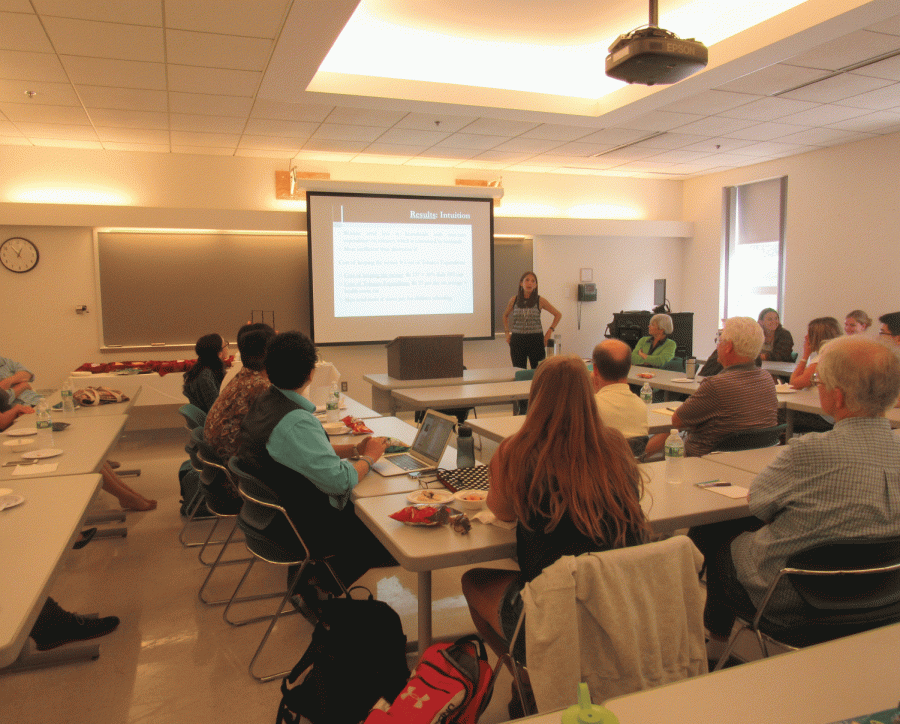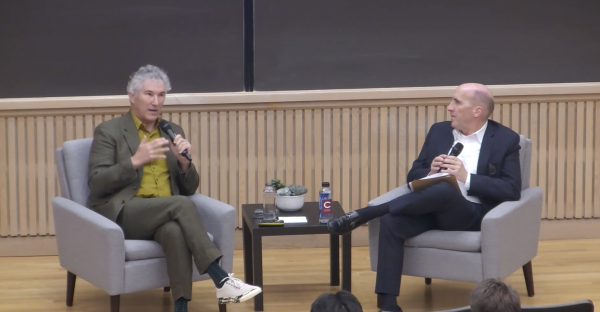Spousal Trust in India: Castilla’s Investment Game
On Thursday, September 8, Assistant Professor of Economics Carolina Castilla presented “Gender Differences in Intra-Household Efficiency: Evidence from an Investment Game between Spouses in India.” This lecture is part of the Social Science Lecture/Luncheon series, which includes lectures given by professors and visiting academics in the social sciences.
During her talk, Castilla explained her research regarding intra-household decision-making that she conducted while living in India.
Castilla’s investment game was designed to isolate the wife and husband of a household and observe the types of decisions made by each individual regarding money and resource allocation.
As a part of Castilla’s game, one of the spouses who was chosen at random was given 75 rupees. This recipient could either keep all of the money or give it to his or her spouse, tripling value of the lump sum. If the recipient chose to send the money to their spouse and it tripled, the receiving spouse could then return or keep as much of the money as he or she saw fit. This game was designed to measure efficiency and spousal trust, based on gender. Castilla found that only five percent of men and two percent of women maximized their family’s money in the investment game.
“On average I am finding that men are more generous in the game than women,” Castilla said.
Castilla also noted that men send more money back to their wives in response to women sending a generous amount in the first stage. Professor Castilla indicated that she found tobacco expenditures played a role in the game, as women sent even less money to their spouse if their annual expenditure on tobacco was six percent or higher. Both sent more money back if the other spouse followed through on paying for their children’s education.
Senior Olivia Miller was surprised by the spending patterns that Professor Castilla’s social experiment outlined, especially in regard to spousal trust.
“I found Professor Castilla’s findings extremely surprising, as so few spouses chose to triple their money, suggesting that perhaps they didn’t trust one another enough,” Miller said.
The presentation included discussion of both external and internal validity, including the findings that women claimed they do have a say in major household decisions. Castilla admitted that the 185 households were fairly wealthy, and the women were less educated than men. All marriages, however, were well established, with the average marriage sampled being 15 years.
Castilla noted early in the lecture that there is no formal mechanism to enforce a contract between married partners regarding financial investments and decision-making, so couples rely on trust. Ideally in this experiment, full trust would be if the initial receiver sent the entire sum of money to the other spouse in order to maximize resource allocation for the household.
Miller was intrigued by the lecture and was curious about the universality of the study.
“I’d be interested to see if the findings held true everywhere and among all classes,” Miller said.
Castilla’s study took place in India where most exchanges are done in cash so there is no bank account to monitor allocation of resources by spouses. The audience was composed mostly of Colgate professors who actively participated in the discussion about Castilla’s study.
Senior Annie Conway enjoyed the lecture and was pleasantly surprised by the interest of the attendees.
“Professor Castilla’s presentation was very compelling. The audience was very engaged, leading to a discussion of how her results compared to their own experiences,” Conway said.





